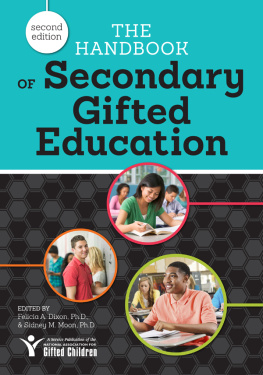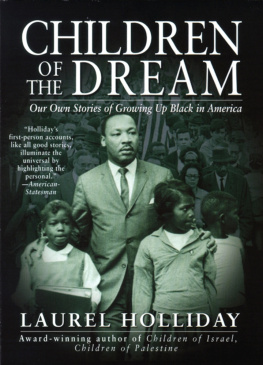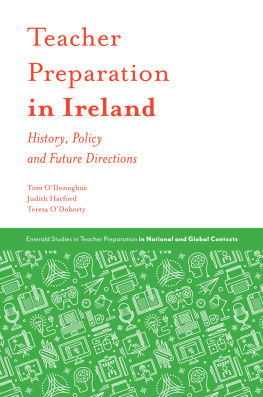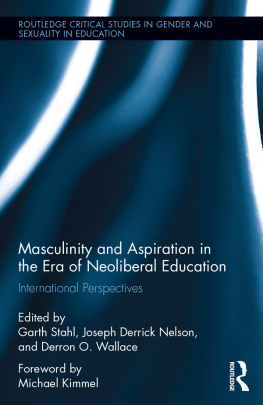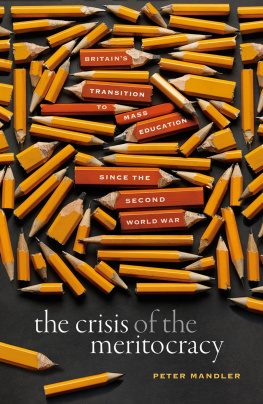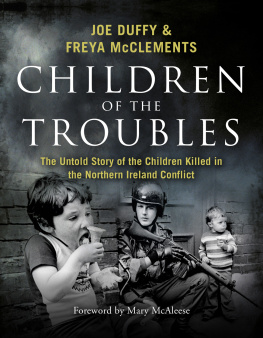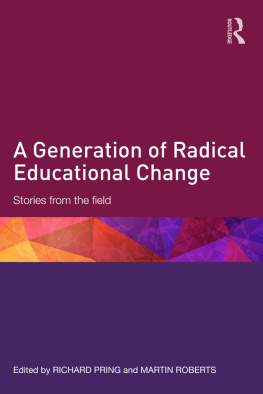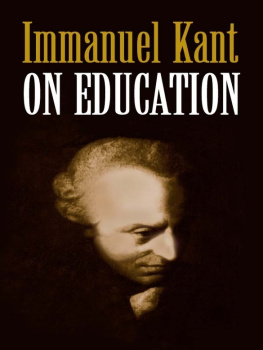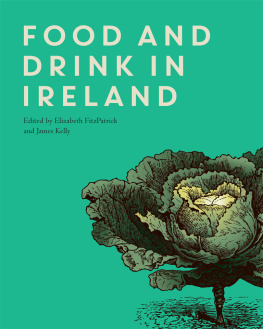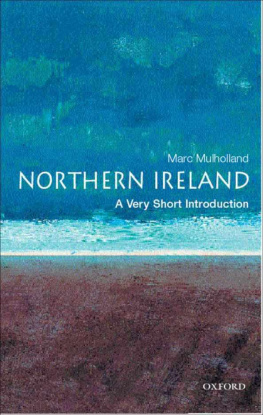THE BOYS OF ST. COLUMBS
2010 Maurice Fitzpatrick, Maccana Teoranta and West Park Pictures
Published in the United States in 2020
by the University of Notre Dame Press
Notre Dame, Indiana 46556
undpress.nd.edu
Originally published in Ireland in 2010 by The Liffey Press
This book is based on the television programme The Boys of
St. Columbs produced by Maccana Teoranta and West Park Pictures
All rights reserved.
Published in the United States of America
Library of Congress Cataloging-in-Publicatin Data
Names: Fitzpatrick, Maurice, 1981 author.
Title: The boys of St. Columbs : the education of a New Ireland / Maurice
Fitzpatrick.
Description: North American. | Notre Dame, Indiana : University of Notre
Dame Press, 2020. | Includes index.
Identifiers: LCCN 2019054502 (print) | LCCN 2019054503 (ebook) | ISBN
9780268107536 (hardback) | ISBN 9780268107543 (paperback) | ISBN
9780268107567 (adobe pdf) | ISBN 9780268107550 (epub)
Subjects: LCSH: Education, SecondaryNorthern
IrelandDerryHistory20th century. | Public schoolsNorthern
IrelandDerryHistory20th century. | Educational law and
legislationNorthern IrelandHistory20th century. | Northern
IrelandPolitics and government20th century. | Northern
IrelandSocial conditions20th century.
Classification: LCC LA669.62 .F58 2020 (print) | LCC LA669.62 (ebook) |
DDC 373.416--dc23
LC record available at https://lccn.loc.gov/2019054502
LC ebook record available at https://lccn.loc.gov/2019054503
This e-Book was converted from the original source file by a third-party vendor. Readers who notice any formatting, textual, or readability issues are encouraged to contact the publisher at
Preface to the 2020 Edition
This book attempts to trace a journey of self-realisation through education by a group of young boys in St Columbs College, Derry. Beyond that, it illustrates how the collective agency of the Civil Rights Movement, a new politics, and interventionist artistic works emerged largely as a consequence of that education. The thesis of the book that the introduction of mass education in Northern Ireland with the 1947 Education Act brought forth a transformative political shift in Northern Ireland a generation later still seems to me to be the most persuasive explanation for the radical transition that occurred in the late 1960s.
The Boys of St. Columbs, born into an environment that sorely required change, soon became agents of that change. The Derry City and school of the 1950s and 1960s, upon which the principals of this book reflect in the interviews I conducted with them in 2009, were radically different from the city and school that they knew as young boys and they played a considerable part in the advances that have been made.
Similarly, the environment of the city and the Northern Irish State has changed over the decade since this book was written. The impact of the report of the Bloody Sunday Inquiry, published in 2010, to take one example, has been wholly liberating. The healing significance of the report, which exonerated the victims of the Bloody Sunday massacre, cannot be overstated: it constituted an absolute acknowledgement of the injustice committed (and validated) by the British security and judiciary systems. In 2011, the pedestrian Peace Bridge opened in Derry, connecting the Waterside and Cityside, and sought to accomplish something through ecumenical infrastructure that the Northern Irish State was founded to oppose the bridge that runs parallel to it, Craigavon Bridge, bears the name of the first Prime Minster of Northern Ireland, a figure who embodied resistance to such pluralism.
The busts of Seamus Heaney, John Hume, and Brian Friel sit side by side in the front hall of St. Columbs College today. The first two, Nobelists who attended St. Columbs, feature in the film and book and, while playwright Brian Friel does not, he nevertheless had a spectral presence in them, being a celebrated former student and author of some of the most foundational works of Irish literature in the twentieth century.
Were you a body or a soul? Seamus Heaney asks in In the Afterlife, one of his poems set in St. Columbs College. We filmed him reading that poem in the college, which became voice-over in the film as his old schoolmates walk through its corridors. The scene and words today are all the more poignant given that Seamus Heaney passed away in 2013, giving rise to extraordinary collective grief in Ireland. As Seamus Deane expressed it, in an obituary piece on Heaneys death:
The thunderclap news of Seamus Heaneys death echoes through the emptiness it left behind. It echoes through all his writings in these first few months in a way that it never will again, his shadow still moving off the page, his warmth still tangible, his own voice, at different periods of his life, still indissolubly allied with the voice of the persona, Seamus Heaney the poet, that later generations will hear, but never quite as we can, we who have known him and still feel the weight and heft of his existence.
That word existence reminds me of a remark he made to me in 2010, when Maurice Fitzpatrick was interviewing us both. Hugh MacDiarmuid, he said, do you remember what he said? He said that writing was human existence come to life. Its a brilliant remark, isnt it? ... Now that he has died he is part of the history of Field Day in a new sense, a sense that brackets those days when he was director of the company and sat with us round the table at Brian Friels house.
Brian Friel died in 2015, as did Bishop Edward Daly the following year. These losses, added to the sad fact of John Humes ill health, meant that The Boys of St. Columbs film would have been impossible to make just a few years after its completion.
John Humes health condition also lends pathos to the deepening importance of his political lifes work. Humes remarkable capacity to unify and forge agreement in a climate of fragmentation remains an example for today. The myriad uncertainties engendered by the UKs bid to leave the EU have already fueled tensions on the border and the conditions for the reemergence of paramilitary violence in Derry. These circumstances throw Humes absence from politics into sharp relief. As Bill Clinton put it:
The fact that John [Hume] was there saying there is a way out of this, there is a peaceful way out of this, there is an inclusive way out of this. Theres a way for a role for the UK to continue and a role for the Irish Republic and a shared power situation in Northern Ireland. It made it a whole lot easier.
Derry remains beset by high unemployment and related social problems. Given the way in which the educational reform enacted in the post-war years alleviated Derrys (then drastic) problems, is it not plausible that many of Derrys contemporary problems can be addressed through extending greater educational opportunity to its citizens? That the fourth largest city on the island of Ireland does not have a university, that the branch of the University of Ulster located in Derry has been deliberately and systematically disinvested, that a Derry University Group has formed: all underline the urgent need to establish an independent university in Derry. If any further justification were needed, politicians both in the UK and in the Republic might look no further than to the uses to which the people in this book put their education.


